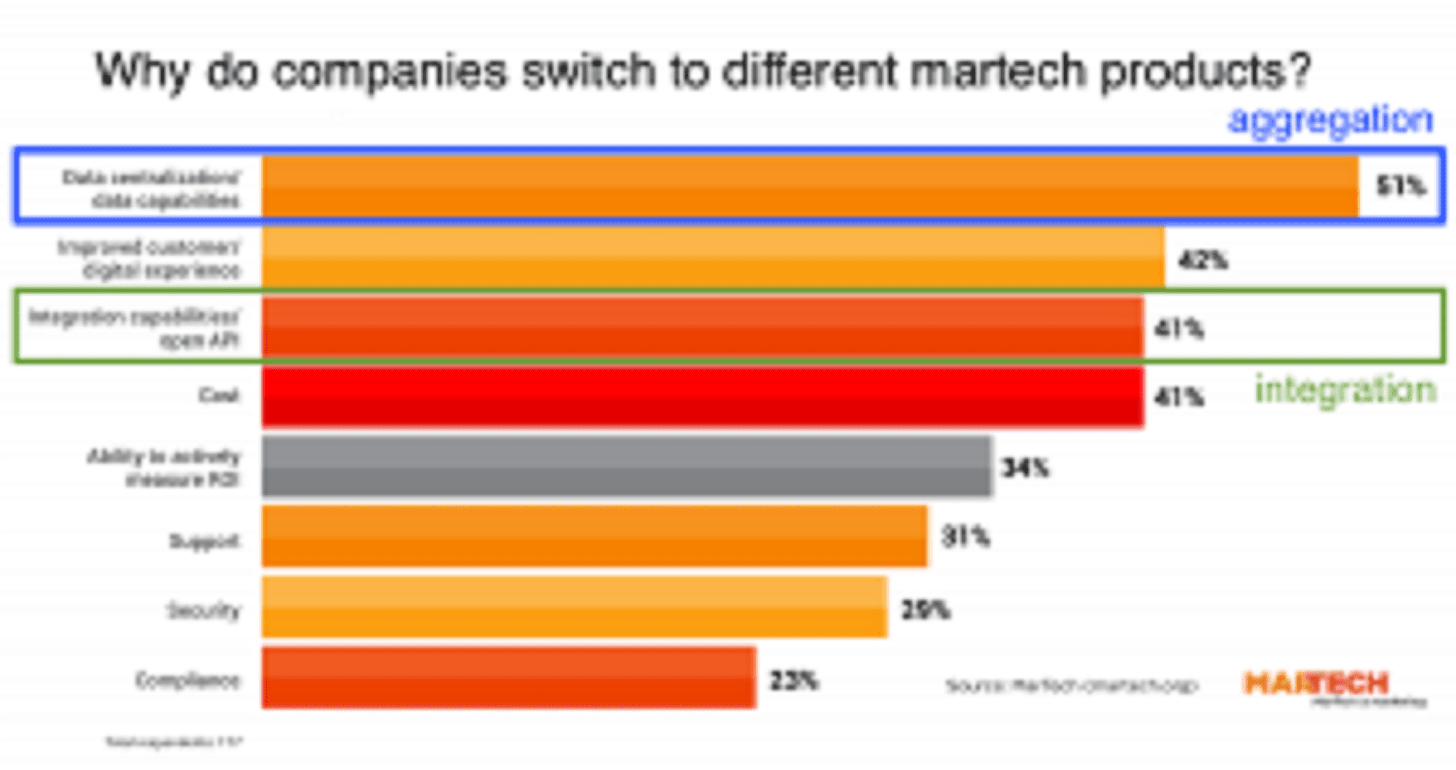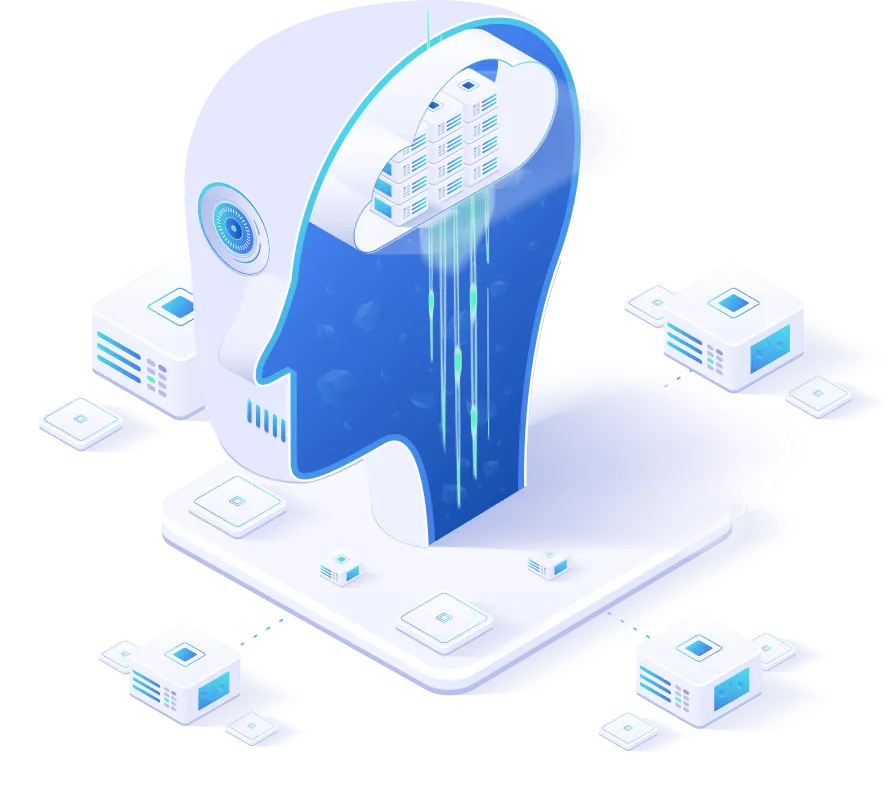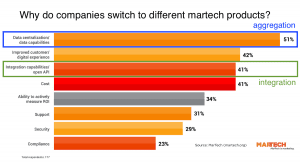
My friends at MarTech just released it 2021 Martech Replacement Survey theirs, revealing insights into what and why companies move from one martech application to another.
Top finding: there are a lot of martech swaps going on!
67% of the 374 marketers they surveyed, from SMEs to large enterprises, reported replacing a marketing technology application in the past year. About half of them attributed the switch to their response to the pandemic. But for the other half, this is not about those circumstances, but the needs they feel regardless.
But the most interesting data to me is the answer to the question, “Why?”
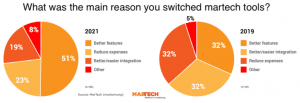
When specifying a primary driver among better features, reduced costs, or better/easier integration, the majority (51%) now chose “better features” – up from 32% in 2019 I would take that as a good sign that all the competition is in technological context is driving meaningful improvements. The 23% opts for cost reduction and the 19% indicates better/easier integration.
But the chart at the top of this post, which I annotated in blue and green, lists the more detailed reasons marketers gave for converting, when they could choose more than one.
The No. 1 reason, chosen by 51% respondents, is “ability to centralize data/data.” And the third reason, chosen by 41%, is “integration capabilities / open API”. Or, as I would frame it: synthetic and integration.
How do we manage all the different applications, agents, automations, algorithms, etc. running in and around marketing? We aggregate their data, workflows, user interfaces, and administration. And we need to integrate everything into those aggregated platforms to achieve that.
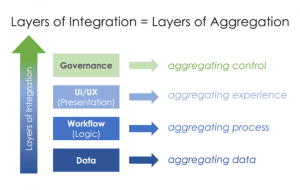
These will be the two topics I will cover in my keynote for MarTech Conference in the next few weeks, From Big Data to Big Campaigns: The New Foundations of Marketing & Customer Experience. (It's virtual and you can register for free – hope to "see" you there.)
Of course, the alternative rationale also highlights improved digital/customer experience as a solid 2nd (42%) and tied costs a 3rd (41%). These are good, solid goals – How do we deliver great customer experiences in a cost-effective way? – and so they may not be surprised.
What's a bit surprising, however, is what people are replacing. By far the most popular replacement solutions are marketing automation (24%) and CRM (23%). (I'd say email distribution is generally considered by most people to be part of marketing automation.)
These are often the core of the martech stack and as foundational systems, they tend to be the most challenging to strip and replace. The fact that nearly 1 in 4 marketers in this survey addressed it is remarkable. (And, yes, I admit, there may have been some self-selection bias on the part of the participants. But in terms of direction, this is still important.)
So it was surprising that so many people took up that challenge.
But perhaps less surprising in the sense that these are some of the oldest components in many martech stacks. As companies look to build their marketing capabilities over the next 5-10 years, they should reassess the foundation on which they are building that future. Aggregation and integration are part of the platform now.
Can't find a better martech? Obviously you can.
Article link: https://chiefmartec.com/2021/09/67-marketers-replaced-martech-tool-past-year/


